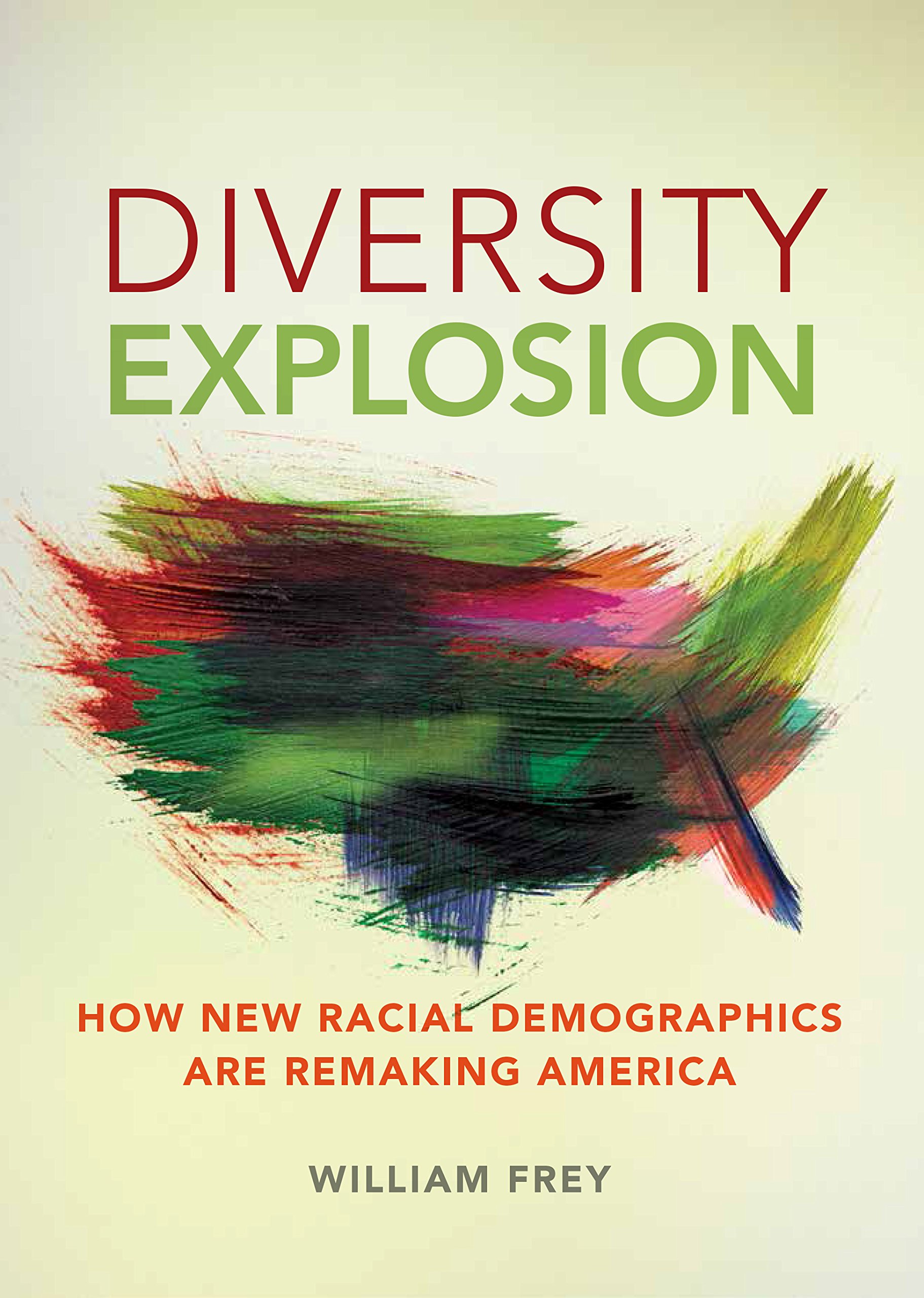Diversity Explosion: How New Racial Demographics are Remaking AmericaPosted in Asian Diaspora, Books, Census/Demographics, Latino Studies, Media Archive, Monographs, Politics/Public Policy, United States on 2014-11-19 23:47Z by Steven |
Diversity Explosion: How New Racial Demographics are Remaking America
Brookings Institution Press
2014-11-19
212 pages
Hardcover ISBN: 9780815725589
Paperback ISBN: 9780815725596
Ebook ISBN: 9780815726357
William H. Frey, Senior Fellow
Metropolitan Policy Program
Brookings Institution, Washington, D.C.
At its optimistic best, America has embraced its identity as the world’s melting pot. Today it is on the cusp of becoming a country with no racial majority, and new minorities are poised to exert a profound impact on U.S. society, economy, and politics.
In April 2011 a New York Times headline announced, “Numbers of Children of Whites Falling Fast.” As it turns out, that year became the first time in American history that more minority babies than white babies were born. The concept of a “minority white” may instill fear among some Americans, but William H. Frey, the man behind the demographic research, points out that demography is destiny, and the fear of a more racially diverse nation will almost certainly dissipate over time.
Through a compelling narrative and eye-catching charts and maps, eminent demographer Frey interprets and expounds on the dramatic growth of minority populations in the United States. He finds that without these expanding groups, America could face a bleak future: this new generation of young minorities, who are having children at a faster rate than whites, is infusing our aging labor force with vitality and innovation.
In contrast with the labor force-age population of Japan, Germany, Italy, and the United Kingdom, the U.S. labor force-age population is set to grow 5 percent by 2030.
Diversity Explosion shares the good news about diversity in the coming decades, and the more globalized, multiracial country that U.S. is becoming.
Contents
- Preface
- 1. A Pivotal Period for Race in America
- 2. Old versus Young: Cultural Generation Gaps
- 3. America’s New Racial Map
- 4. Hispanics Fan Out: Who Goes Where?
- 5. Asians in America: The Newest Minority Surge
- 6. The Great Migration of Blacks—In Reverse
- 7. White Population Shifts—A Zero-Sum
- 8. Melting Pot Cities and Suburbs
- 9. Neighborhood Segregation: Toward a New Racial Paradigm
- 10. Multiracial Marriages and Multiracial America
- 11. Race and Politics: Expanding the Battleground
- 12. America on the Cusp
- Acknowledgments
- Notes
- Index
